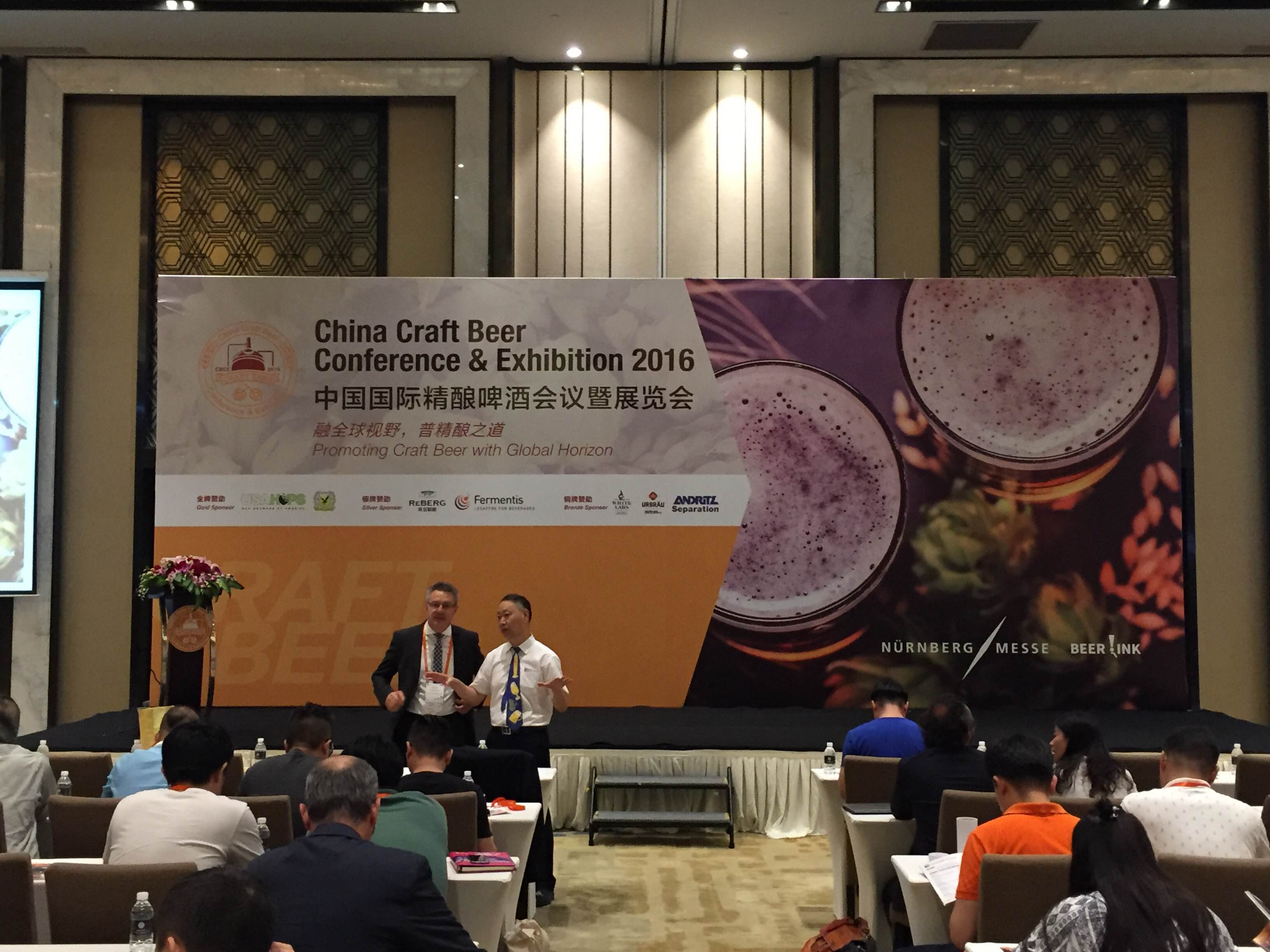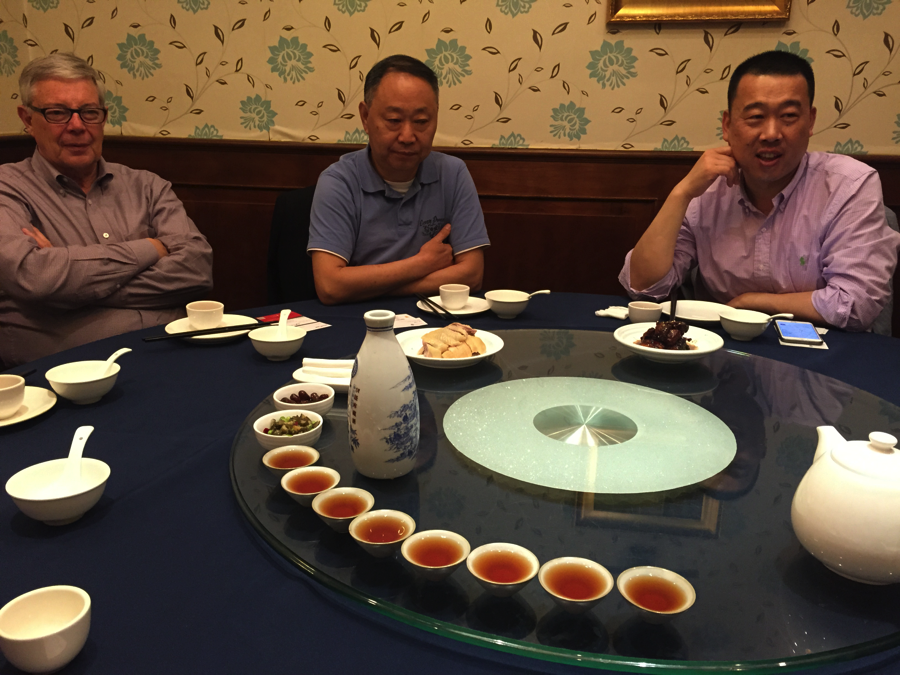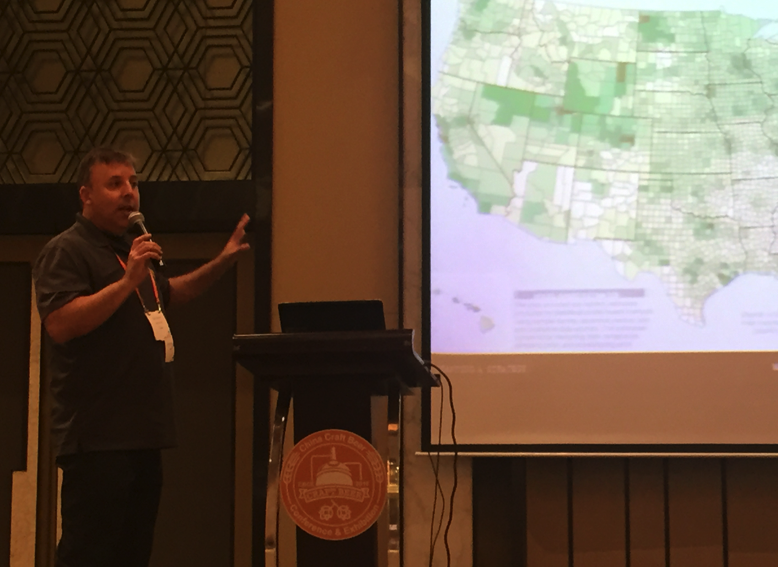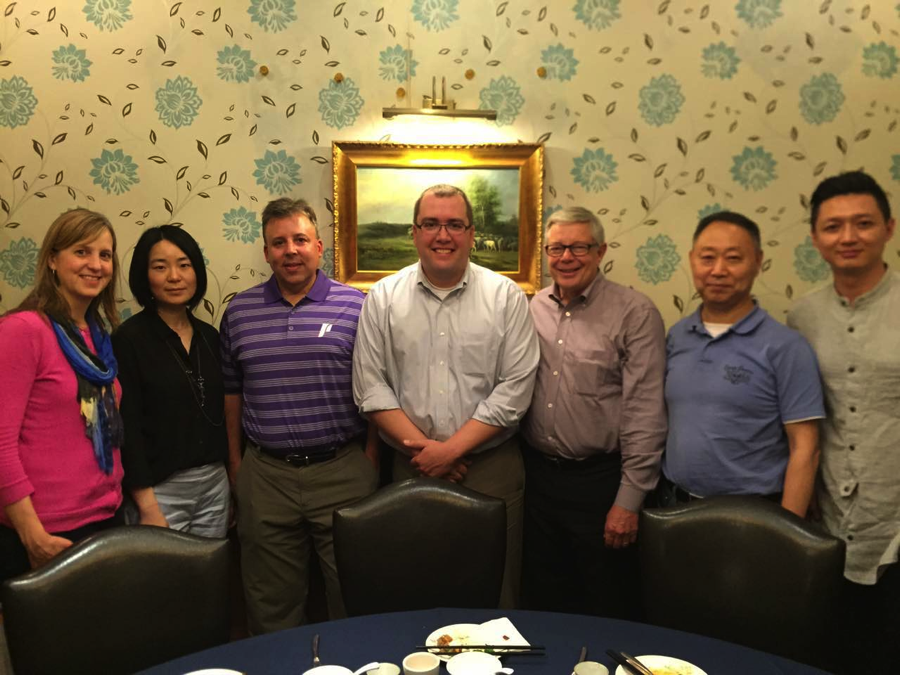Recent Blog Posts
- Is 2021 The Most Important Year Ever For Your Brewery To Win A Medal?
- Creating New Demand In 2021 and Beyond
- What Does Sweetwater Brewing Company’s Sale Mean For Most Small Breweries?
- A Helping Hand For Cash Strapped Breweries
- Has Craft Beer Flavor Innovation Played Itself Out?
- Brewery Staff Attire
- Craft beer is NOT depressed, but the Brewers Association may be...
- Nailing the Basics: Inventory for a Brewery
- Has the BA Become Too Big to Succeed?
- Making Sense of the Revised Craft Brewer Definition
- Two Weeks That Changed My Brewery's Strategy
- Don't Get Stuck in the Middle: European Ownership, Flagship Strategies, & Craft Beer Market Growth
- Goodwill Can Be an Asset for Your Brewery
- Update on Craft Beer in Australia
- 12 NW Whiskeys Reviewed
Submitted by
SUBMITTED BY Sam Holloway ON Mon, 05/30/2016 - 17:56
If you are a supplier in the U.S. craft beer industry, you had better get your game plan ready for China
Sam Holloway, Ph.D., May 30, 2016
I just returned from a week in Shanghai where I attended the first ever, China Craft Beer Conference and Exhibition. Over six hundred eager entrepreneurs attended and their laser like focus on learning and willingness to share knowledge was impressive. Throughout the week I was reminded of a famous paper written by my friend and mentor, Alan Meyer and his colleague, Joseph Lampel. Their paper: Field Configuring Events as Structuring Mechanisms: How Conferences, Ceremonies, and Trade Shows Constitute New Technologies, Industries and Markets[1], tries to predict the initial conditions of market emergence. Lampel and Meyer hope to answer a famous question that is not well understood: “Where do Markets Come From?” A field, like a market, can emerge due to many different initial conditions. In this blog I will lay out the initial conditions proposed by Meyer and Lampel (2008) and show our readers why China is poised to dominate the global craft beer market.
What Are Field Configuring Events (FCE’s)
FCE’s are “arenas in which networks are constructed, business cards are exchanged, reputations are advanced, deals are struck, news is shared, accomplishments are recognized, standards are set, and dominant designs are selected” Lampel and Meyer (2008). Meyer and Lampel (2008) go on to suggest: “FCEs can enhance, reorient, or even undermine existing technologies, industries, or markets; or alternately, they can become crucibles from which new technologies, industries, and markets emerge. Recognizing this, their organizers often design FCEs with an eye towards influencing field evolution.” CBCE organizer Michelle Wang and her colleagues at The Beer Link China are change agents, helping the craft beer industry accelerate in China.
With Lampel and Meyer’s (2008) definition as a baseline, let’s examine the precursors for field (market) emergence and how the China Craft Beer Conference and Exhibition is a catalyst for the entire Chinese craft beer industry. I will lay out each criterion in order, and provide examples of the people I met, the speeches I heard, the business cards exchanged, and the standards being set in China that will enable this country to quickly become the new home of craft beer. And I am going to mostly use pictures, to ease the strain on your eyes and let the images tell a more powerful story. In the end, you too will realize that China is poised to dominate global craft beer production, consumption, and innovation – perhaps in as little as ten years from now. You had better get your game plan ready!
1. FCEs assemble in one location, actors from diverse professional, organizational and geographic backgrounds.
Spend a few minutes reviewing the CBCE conference program here. You will see industry experts from America, Europe, Latin America, and China all descending on Shanghai, China for three days. Here is a brief snapshot:
China for three days. Here is a brief snapshot:

2. FCEs duration is limited, often running from a few hours to a few days
Over a three-day period, conference attendees were subject to multiple interactions, instructional demonstrations, meals and networking, and live translation of all English/Chinese discussions.

3. FCEs provide unstructured opportunities for face-to-face social interaction
Hosted by CAS Member, BoxingCat Brewery and featuring a Firestone Walker Tap Takeover, complete with Firestone Walker Brewmaster Matt Brynildson, conference attendees attended a fun evening at BoxingCat’s Liquid Laundry facility:

4. FCEs include ceremonial and dramaturgical activities
Traditional foods from the Yangtze River Delta region were shared by the Dean of the University of Portland, Robin Anderson, the Dean of Doemens Asian Beer Academy, Professor Guangtian Zhou, and CEO & Brewer of the Beer Link China, Mr. Liu:

5. FCEs are occasions for informational exchange and collective sensemaking
Dr. Mark Meckler speaks about how craft breweries help the economic conditions in every state of the USA, even rural regions, as he explains how craft breweries can help any village of any size in China.

Dr. Sam Holloway speaks about economic strategies for small breweries, no matter their size or location in China:

6. FCEs generate social and reputational resources that can be deployed elsewhere for other purposes
Maybe my favorite part of the whole conference... Discussing with the Beer Link and Doemens Asian Beer Academy how the University of Portland and Crafting A Strategy can help Chinese brewing students understand the business side of craft beer:

[1] Field-Configuring Events as Structuring Mechanisms: How Conferences, Ceremonies, and Trade Shows Constitute New Technologies, Industries, and Markets. Available from: https://www.researchgate.net/publication/228316629_Field-Configuring_Events_as_Structuring_Mechanisms_How_Conferences_Ceremonies_and_Trade_Shows_Constitute_New_Technologies_Industries_and_Markets [accessed May 30, 2016].

